GASTROENTEROLOGY
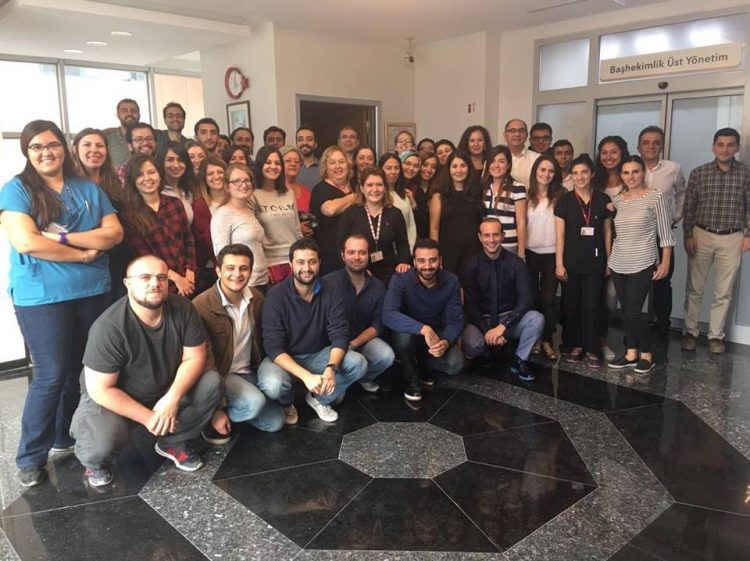
Within the Internal Medicine Department, it provides outpatient services in our polyclinics, and inpatient services with the bed reserved for patients.
Patients are also examined in special polyclinics such as “hepatology”, “Inflammatory bowel diseases”, “Gastrointestinal system oncological diseases” and “pancreatic diseases”.
In the “Central Endoscopy Unit” (MEU), which was renovated in 2015 and equipped with the latest technology endoscopes, routine and advanced endoscopy procedures are performed for both outpatients and inpatients.
Central Endoscopy Unit is located within the body of Hospital of Gunduz , in the neighborhood of our hospital’s emergency department.
In the headship of Prof. Dr. Leyla Iyilikci and with the help of the anesthesia team, the procedures are performed by applying sedation analgesia, and the comfort of the patient is provided at the highest level in our unit.
In the endoscopy unit, apart from 6 faculty members, service is provided by 3 specialists, 8 nurses, 3 personnel and 2 secretaries.
Current Faculty Members of the Department:
Prof .Dr. Hale Akpinar (Head of the Department)
Prof. Dr. Omer Topalak
Prof. Dr. Ender Ellidokuz
Prof. Dr. Mujde Soyturk
Prof. Dr. Mesut Akarsu
Assoc. Prof. Dr. Goksel Bengi
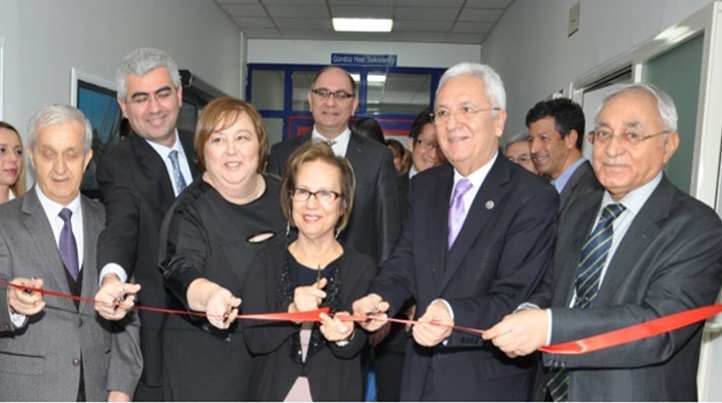
With the participation of the honourable Rector Prof. Dr. Mehmet Fuzun and the honourable Dean Prof. Dr. Tulay Candan, opening of our “Central Endoscopy Unit”
INTERNATIONAL CONGRESSES
“Turkish-Japanese Gastroenterology Day“. In cooperation with the Turkish Gastroenterology Association and with the participation of Japanese Gastroenterologists Prof. Dr. Hikoo Shirakabe and Prof. Dr. Hidenobu Watanabe, it was held in 23rd September 1994, in the Department of Gastroenterology of the Medicine Faculty of Dokuz Eylul University.
Between 1993 and 2000, Turkish-Japanese Gastroenterology Days were held 7 times in Izmir, Antalya, Istanbul with the contribution of Japanese and Turkish scientists. Since these meetings were held for the first time in Turkey, they received great attention and appreciation.
Turkey Helicobacter pylori Study Group meeting was held successfully with the participation of European members of this group in 2005 in Izmir.
Following of that, in 2007, the 20th European Helicobacter pylori Study Group meeting was officially held at the Cevahir Hotel in Istanbul with the participation of 450 people.
In 2008, with the headship of Prof. Dr. Hale Akpınar and with the cooperation of European Society of Gastrointestinal Endoscopy (ESGE) and gastroenterology of DEUTF (the Medicine Faculty Dokuz Eylul University) “Gastrointestinal Endoscopy Workshop” was held with intense participation at Dokuz Eylül University in İzmir.
The international workshop of the Gastrosurgical Club was held in İzmir with the participation of very intense local and foreigners.
European Bridging Meetings, of which Prof. Dr. İlkay Şimşek is a member, was contributed with the participation of 1 or 2 local specialists
Advanced therapeutic endoscopy: EMR\ESD and POEM workshop, jointly organized by “Korea Seoul Chakazang Medical Center” and Turkish Gastroenterology Association, was held on 10-12 July 2018 at the Endoscopy unit of the Department of Gastroenterology of Medical Faculty of Hospital of Dokuz Eylul University.
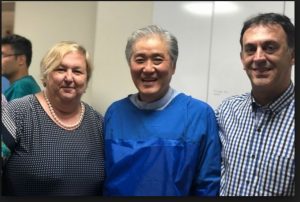
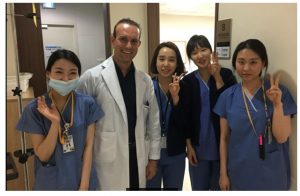
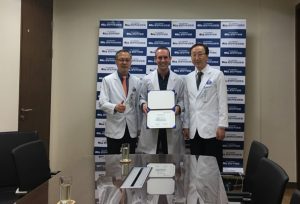
What is Endoscopic Ultrasound (EUS)?
Endoscopic ultrasound is a highly developed imaging device that can easily detect the quality and stage of vital masses and lesions hidden behind the walls of organs such as the stomach, intestines, esophagus, gall bladder, and pancreas that make up the digestive system.
It is a technique used in both diagnosis and treatment functions by using the normal endoscopic method.
What are the advantages of Endoscopic Ultrasound over normal ultrasound?
While ultrasound is an imaging technique applied over the skin, endoscopic ultrasound reaches the target area directly and provides the image reflected on the monitor directly from the case in question.
Normal ultrasound also performs imaging and diagnosis, but with endoscopic ultrasound, it is possible to detect any tumor or mass formed in the digestive tract and to have more detailed information about the disease. In order to obtain information about the nature of the mass and the treatment, endoscopic ultrasound provides more accurate data than normal ultrasound.
In cases where biopsy is required, it reduces the surgical burden, increases the comfort of the patient and makes the procedure simpler.
Endoscopic Ultrasound is used in the diagnosis of which diseases?
- In the detection of pancreatic cancer and cystic, solid nodules formed in the pancreas,
• In the evaluation of the esophagus, stomach, gallbladder and intestinal surfaces,
• In the monitoring the formation of stones and sludge in the gallbladder,
• In the diagnosis of intestinal cancer, intestinal tuberculosis, intestinal lymphoma,
• In taking biopsy from intra-abdominal lymph nodes and in the detection of many diseases that occur in similar digestive system organs
Double Balloon Enteroscopy (DBE) is an endoscopic procedure used for the detection and treatment of pathological conditions in the small intestine. It can be done by accessing orally or through the anal canal.
The procedure of DBE takes 60-90 minutes on average. After the same period after the procedure, the patient returns to normal. Patients who do not have any side effects and 60-90 minutes after the procedure can be sent home.
Who should DBE be performed?
*Investigation of unexplained gastrointestinal bleeding
*Removal of polyps in the small intestine and tumors that can be removed endoscopically
*Polyposis syndromes
*Crohn’s patients with possible small bowel involvement
- Identification or treatment of lesions detected in the small intestine in capsule endoscopy
- * Evaluation of lesions detected in the small intestines in radiological examinations
- * Crohn’s disease, surgery or drug-induced (NSAID) stenosis ordilatation of stenoses, stent placement
- * Removal of foreign bodies in the small intestine (such as capsules)
- Meckel’s diverticulum
- Pre-surgical marking of a lesion in the small intestine
- Unexplained chronic abdominal pain
- Unexplained iron deficiencies
- Chronic diarrhea
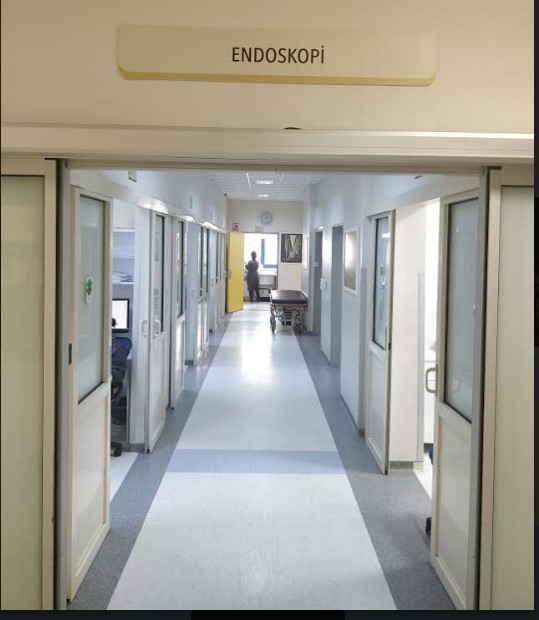
ENDOSCOPY

